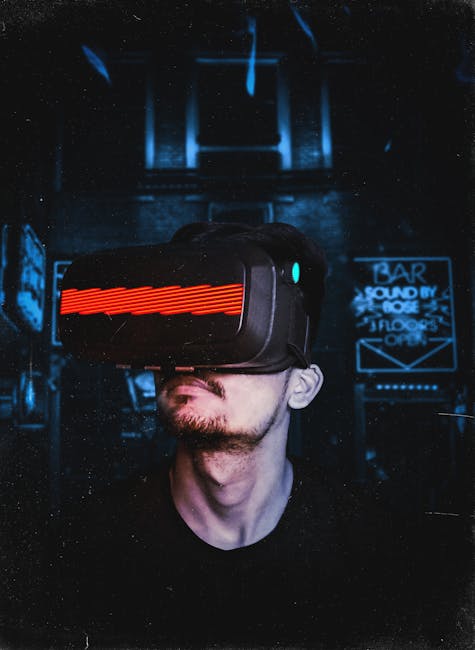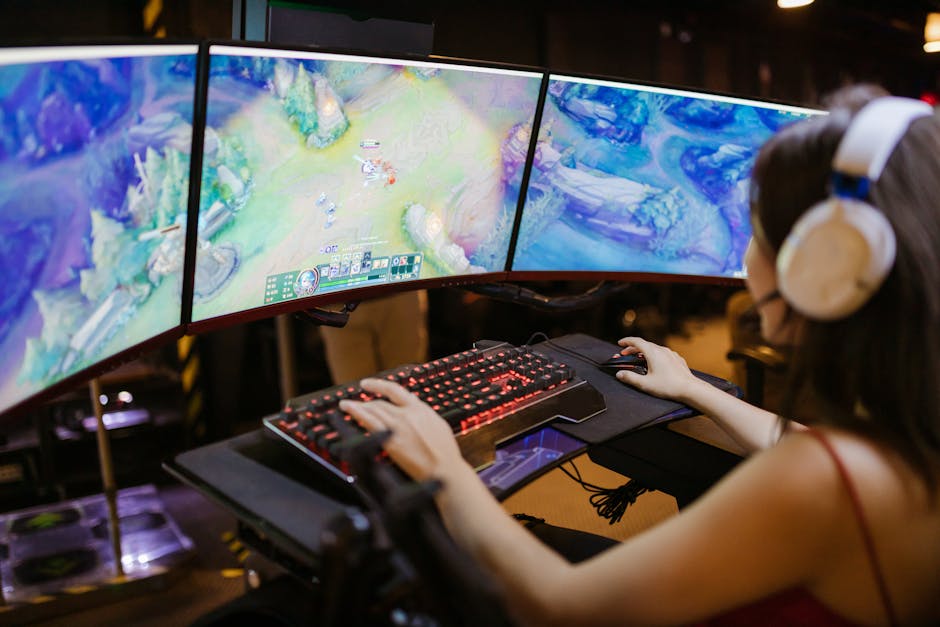The Impact of Video Games on Modern Entertainment: A Closer Look
Welcome to a world where pixels and polygons have revolutionized not only how we play but how we consume entertainment. Over the decades, video games have evolved from a niche hobby to a cultural behemoth that rivals even the biggest blockbuster movies and popular television shows. In this article, we will delve into the impact of video games on modern entertainment, exploring how they have shaped our culture, influenced other forms of media, and captivated audiences worldwide.
The Evolution of Video Games
Video games have come a long way since the days of Pong and Space Invaders. What started as simple pixelated images on a screen has transformed into immersive worlds with stunning graphics, intricate storylines, and dynamic gameplay. The evolution of technology has played a significant role in this transformation, allowing developers to push the boundaries of what is possible in the gaming industry.
With the advent of powerful gaming consoles, high-performance PCs, and mobile devices, video games have become more accessible than ever before. Players can now experience breathtaking worlds, engaging narratives, and competitive multiplayer experiences at the touch of a button. This accessibility has propelled the video game industry to new heights, with record-breaking sales and a growing global audience.
The Cultural Impact of Video Games
Video games have ingrained themselves into our cultural fabric, influencing not only entertainment but also music, fashion, and even art. Iconic characters like Mario, Sonic, and Lara Croft have become household names, transcending the boundaries of the gaming world to become pop culture icons.
Furthermore, video game soundtracks have evolved into powerful compositions that evoke emotions and set the tone for gameplay. From the haunting melodies of “The Legend of Zelda” to the adrenaline-pumping beats of “DOOM,” video game music has become a genre in its own right, with concerts and live performances drawing crowds of enthusiastic fans.
In addition to music, video game fashion has also made its mark on mainstream culture. Cosplayers recreate elaborate costumes of their favorite characters, while brands collaborate with game developers to create limited-edition clothing lines inspired by popular franchises. Video games have become a source of inspiration for designers and fashion enthusiasts alike, blurring the lines between virtual and real-world style.

Video Games as a Medium of Storytelling
One of the most significant impacts of video games on modern entertainment is their role as a powerful medium of storytelling. Unlike passive forms of media like movies or television, video games allow players to immerse themselves in interactive narratives where their choices directly influence the outcome of the story.
Games like “The Last of Us,” “Red Dead Redemption 2,” and “Life is Strange” have garnered critical acclaim for their compelling stories, complex characters, and thought-provoking themes. These games tackle mature subjects such as love, loss, morality, and redemption, resonating with players on a deeper emotional level.
Interactive storytelling in video games has the unique ability to create empathy and emotional connections between players and characters. By putting players in the driver’s seat, games can elicit a wide range of emotions, from joy and triumph to sadness and introspection. This emotional resonance sets video games apart as a truly immersive form of entertainment that can leave a lasting impact on players long after they have put down the controller.
The Influence of Video Games on Other Media
Not only have video games shaped our cultural landscape, but they have also influenced other forms of media, including movies, television, and literature. Hollywood has embraced video game adaptations, bringing beloved game franchises to the big screen with varying degrees of success.
From the action-packed “Resident Evil” series to the visually stunning “Detective Pikachu,” video game movies have introduced new audiences to the fantastical worlds and characters that gamers have cherished for years. While some adaptations have faltered due to poor storytelling or lackluster performances, others have succeeded in capturing the essence of the source material and resonating with both fans and newcomers alike.

Television has also been influenced by the world of video games, with shows like “The Witcher,” “Castlevania,” and “The Mandalorian” drawing inspiration from game narratives, aesthetics, and themes. These shows cater to a diverse audience that craves the depth and complexity found in video game storytelling, bringing the magic of interactive experiences to the small screen.
Furthermore, video game tie-in novels and comics have expanded the lore of popular franchises, offering fans new insights into their favorite characters and worlds. These supplementary materials enrich the gaming experience and provide additional context for players who want to delve deeper into the intricacies of their favorite games.
The Future of Video Games in Entertainment
As technology continues to advance and the boundaries between reality and virtuality blur, the future of video games in entertainment looks brighter than ever. Virtual reality (VR) and augmented reality (AR) technologies have opened up new possibilities for immersive gaming experiences, allowing players to step inside their favorite worlds and interact with them in unprecedented ways.
The rise of live streaming platforms like Twitch and YouTube Gaming has also transformed how we consume gaming content, with millions of viewers tuning in to watch their favorite streamers play and discuss the latest titles. This shift towards online content creation has given rise to a new generation of gaming influencers and esports athletes who command massive audiences and shape trends within the gaming community.
Moreover, the concept of games as a service has gained popularity, with developers releasing continuous updates, expansions, and DLC to keep players engaged long after the initial release. This ongoing support and interaction with the community foster a sense of community and loyalty among players, creating a dynamic ecosystem where games evolve alongside their audience.
In conclusion, the impact of video games on modern entertainment is undeniable. From their evolution as a medium of storytelling to their influence on popular culture and other forms of media, video games have reshaped the entertainment landscape in profound ways. As we look to the future, we can expect video games to continue pushing boundaries, breaking barriers, and captivating audiences worldwide with their innovative gameplay, compelling narratives, and immersive experiences.
Whether you’re a seasoned gamer or a casual player, the world of video games offers a vast and diverse universe of entertainment that has something for everyone. So grab your controller, embark on epic quests, and immerse yourself in the limitless possibilities of this dynamic and ever-evolving medium.


